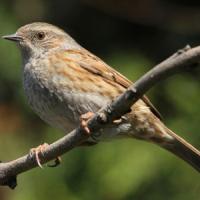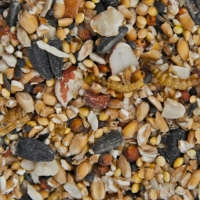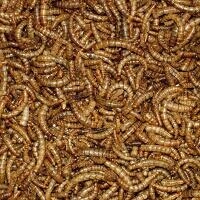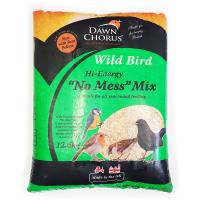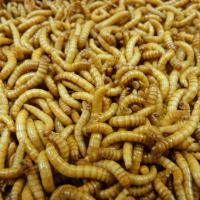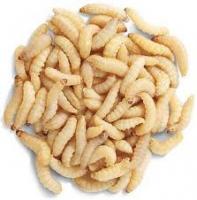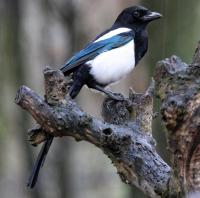- Home
- FAQs
- Customer Video Gallery
- Customer Photo Gallery
- Bird Facts
- Bird Food Blog
- Bird Information
- Feeding Advice
- Small Animal Information
- A to Z of Guinea Pigs
- A to Z of Hamsters
- A to Z of Rabbits
- Basic Care for Guinea Pigs
- Basic Care for Hamsters
- Basic Care for Rabbits
- Basic care for Chinchillas
- Basic care for Ferrets
- Basic care for Gerbils
- Basic care for Mice
- Basic care for Rats
- Buying a Healthy Small Animal
- Does your Reptile need a Licence
- Equipment for Ferrets
- Equipment for Hamsters
- Equipment for Mice
- Equipment for your Chinchilla
- Equipment for your Gerbil
- Equipment for your Guinea Pig
- Equipment for your Rabbit
- Keeping a House Rabbit
- Dog Information
- Cat Information
- Customer Information
- Fat Balls
- Suet Pellets
- Straights
- Seed Mixes
- Suet Treats
- Mealworms
- Bird Feeders
- My Account

| Scientific Name | Prunella modularis |
| Breeding | April |
| Fledge Days | 12-15 |
| Incubation Days | 14-15 |
| Lifespan | 2 years |
| Number of Clutches | 2-3 |
| Number of Eggs | 4-6 |
| Size | 14.5cm |
| Weight | 16 - 25g |
| Wingspan | 19-21cm |
Bird Family : Accentors
Dunnock Facts - Information About Dunnock
Dunnock - Prunella Modularis
The Dunnock is an abundant British breeding garden bird even though numbers have decreased in recent years. The Dunnock is at home in the garden where it keeps in the shadows and the undergrowth. It is the UKs only member of the Accentor family.
Identification:
Adult
- The Dunnock is very common British breeding resident.
- Sexes are alike.
- Dunnocks are small Sparrow like birds, they are often referred to as Hedge Sparrows although they belong to a different group…the Accentors, they are around 15cm in length.
- They are most likely to be confused with House Sparrows as they share similar colours and habitats.
- Dunnocks tend to stay low and have a habit of flicking their wings and moving in jerky fashion.
- Longer tail than House Sparrow , back and wings are a chestnut brown with heavy black (and grey) streaking. Rump is grey.
- The wing shows a single thin whitish wingbar.
- Head is all grey with slightly browner crown and ear coverts.
- The bill is black and thin.
- Underparts, chin, throat, breast and belly are all pale grey, undertail coverts paler.
- Bill; black and thin, eye red/brown, legs brown.
- Juveniles appear from April onwards and look similar to adult, they tend to look cleaner and show a browner head and dark streaking to the breast and belly.
- Bill and eye black, legs brown.
Juvenile
Status and Distribution
The Dunnock is a very abundant breeding resident in the UK with over 2 million pairs. It occurs in all counties throughout the UK and Ireland.
Habitat/Food
Dunnocks occur in all habitat types throughout the UK, woodlands, parks, gardens, farmland, hedgerows, towns and cities, indeed any open country habitat with suitable scrub.
They are Insect eaters but in the garden Dunnocks will take Seed Mixes, Fat Balls , scraps, Suet, Berries and Fruit.
Song/Call
Several call notes, most common being a short sharp ‘tseeek’
The following food is favoured by Dunnock




